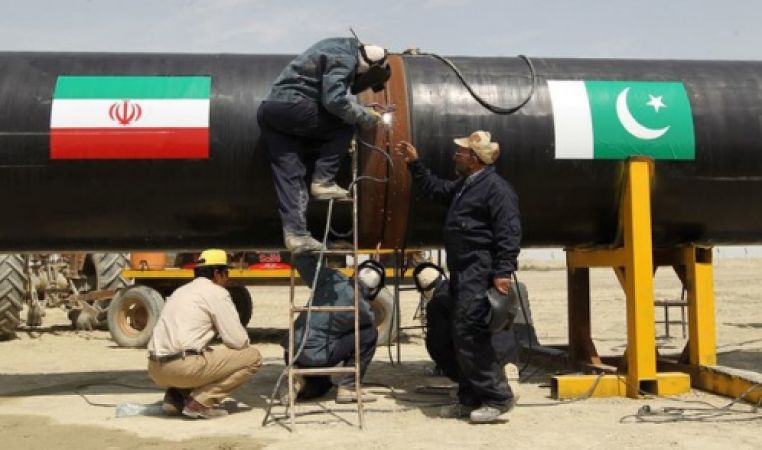
Islamabad: Dr Musadiq Malik, the minister of state for petroleum, stated that Pakistan has asked for the suspension of its contractual obligations in the multi-billion dollar Iran-Pakistan gas pipeline project, citing US sanctions as the main obstacle to the South Asian country fulfilling its end of the bargain.
The 2,775-km pipeline that would transport natural gas from Iran to Pakistan has been discussed since 1995, but it hasn't been built yet primarily because Pakistan lacks the funds and it is complicated by US sanctions related to Iran's nuclear activities.
According to a 2009 agreement between the two nations, the pipeline project was to be finished by December 2014 and would provide Pakistan with 21.5 million cubic metres (760,000 million cubic feet) of gas daily. Iran would lay down the pipeline on its side, and Pakistan was expected to do the same on its soil, according to the segmented construction plan.
Also Read: Three Police Officers Detained Amidst Riots and Unrest
Arab News was able to obtain a copy of Malik's written testimony to the parliament in which he claimed that Pakistan's state-owned enterprises would not be in danger and that project activities would resume once US sanctions against Iran were lifted.
According to the Gas Sales and Purchase Agreement (GSPA), "Pakistan has issued a Force Majeure and Excusing Event notice to Iran, which subsequently suspends Pakistan's obligations under the GSPA," Malik wrote, adding that Iran contests the legitimacy of the notice.
A clause known as "force majeure" is often included in contracts to release parties from responsibility for unexpected and unavoidable calamities that disrupt the expected flow of events and prevent participants from fulfilling their obligations.
Should Iran decide to take this matter to arbitration, Malik said, "the matter will be finally settled through arbitration." "The result of the arbitration, to be determined by the arbitrators, shall determine the exact amount of penalty, if any."
Also Read: Ethiopian Airlines cancels flights to the region affected by conflict
In order to request an exemption from sanctions for the gas project, Malik claimed that the Pakistani government was communicating with US authorities through diplomatic channels.
To build the gas pipeline as soon as possible, all necessary steps are being taken, he added.
Iran's Foreign Minister Hossein Amirabdollahian urged Islamabad to finish its portion of the long-delayed project last week while he was in Pakistan.
Also Read: Imran Khan: Faces Five-Year Political Hiatus in Pakistan due to imprisonment
In accordance with a penalty clause, Pakistan is required to pay Iran $1 million every day starting on January 1, 2015, if the construction of the pipeline on its soil is not finished. Pakistan will probably be required to pay a fine in the billions of dollars if Iran wins the arbitration case.